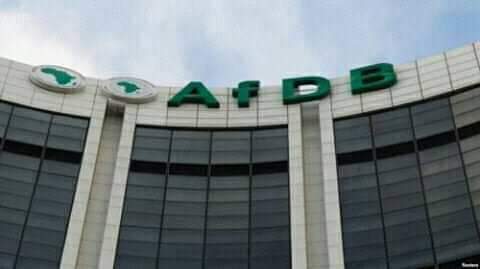The African Development Bank (AfDB) joins forces with the Libyan Government to bolster food security and resilience in Libya.
The Libyan Government’s efforts to enhance food security and build resilience in the country have gained renewed support from the African Development Bank (AfDB).
In a coordination meeting focused on the Food Security Agenda in Libya, Malinne Blomberg, the Bank’s Deputy Director General for Northern Africa, emphasised the importance of food security as a prerequisite for economic development, social stability, and overall well-being.
The Bank’s collaboration with other development partners is aimed at ensuring the success of this strategy.
Deepening Dialogue On Key Priorities
To foster a deeper dialogue with the Libyan Government, the African Development Bank hosted a meeting to discuss key priorities, with a particular focus on agriculture. This initiative aligns with the Bank’s commitment to addressing global challenges and building upon the outcomes of the January Dakar 2 Summit on Food Sovereignty and Resilience in Africa.
Diverse Stakeholders And Collaborative Efforts
The meeting brought together a diverse group of stakeholders, including the Libyan delegation led by Dr. Mahmoud El Futaisi, Director General of the National Economic and Social Development Board. Dr. El Futaisi is responsible for preparing the national food security strategy.
Representatives from prominent organizations such as the Food and Agriculture Organization, World Food Programme, United Nations Children’s Fund, the Islamic Development Bank Group, and the World Bank also participated in the discussion.
The African Development Bank’s Initiatives
The African Development Bank has taken concrete steps to bolster food security and nutrition in Africa. Through the African Emergency Food Production Facility, the Bank has allocated $1.5 billion to mitigate the impact of rising food prices and inflation on the continent.
Launched in May of the previous year, this facility has been instrumental in addressing the challenges exacerbated by climate change, the Covid-19 pandemic, and other global events, such as Russia’s war in Ukraine.
Moreover, the Bank played a significant role in co-organizing a food summit in Dakar, Senegal, in January. The summit resulted in the formulation of food compacts for African countries, setting the stage for comprehensive food security strategies.
Addressing Complex Challenges
During the meeting, participants engaged in discussions regarding the formulation and implementation of food security strategies.
The complexity of challenges posed by climate change, water management, nutrition, inclusiveness, and emergency response preparedness were among the key areas of focus.
The African Development Bank shared its experience in supporting other countries in the region, including Egypt and Tunisia, in developing their wheat value chain compacts.
The international agencies present also contributed their insights and approaches to addressing food security challenges.
Fostering Partnerships And Coordination
The meeting served as a platform to reinforce the commitment of development partners towards the success of Libya’s first national food security strategy.
Recognizing the need for coordinated efforts, participants agreed to establish a coordination working group and a technical task force.
These entities will work together to drive the strategy forward, laying out a concrete action plan and timeline for implementation. The collaboration among stakeholders aims to ensure efficiency and achieve tangible results in enhancing food security in Libya.
The African Development Bank’s support for Libya’s food security agenda marks a crucial step towards building resilience in the North African nation.
By fostering collaboration among various stakeholders and drawing upon their experiences, the Bank aims to strengthen partnerships and address complex challenges such as climate change and water management.
With a well-defined strategy and collective efforts, Libya can enhance food security, paving the way for economic development, social stability, and the overall well-being of its population. The initiatives undertaken by the African Development Bank, such as the African Emergency Food Production Facility and the co-organized food summit in Dakar, Senegal, demonstrate the Bank’s commitment to mitigating global challenges and supporting comprehensive food security strategies in Africa.
Moving forward, the coordination working group and technical task force established during the meeting will play pivotal roles in driving the implementation of Libya’s food security strategy. These entities will work together to define a clear roadmap, actionable plans, and measurable milestones within a specified timeline. By doing so, they aim to ensure efficiency, accountability, and the achievement of tangible outcomes.
Addressing the specific challenges faced by Libya, including climate change, water management, nutrition, and emergency response preparedness, will require concerted efforts from all stakeholders involved. The shared experiences and approaches shared during the meeting will inform the development of effective strategies tailored to Libya’s unique circumstances.
To stay up to date with the latest developments and progress in Libya’s food security initiatives, you can visit the official website of the African Development Bank (www.AfDB.org). The Bank’s website provides comprehensive information on their ongoing projects, partnerships, and efforts to enhance food security and nutrition in Africa.
The collaboration between the African Development Bank and the Libyan Government serves as a crucial step towards bolstering food security and building resilience in Libya. With the commitment of various stakeholders and the establishment of coordination mechanisms, Libya’s national food security strategy is well-positioned to succeed. By addressing the complex challenges and harnessing the expertise and experiences of development partners, Libya can achieve its goals of ensuring food security, fostering economic growth, and improving the well-being of its population.










